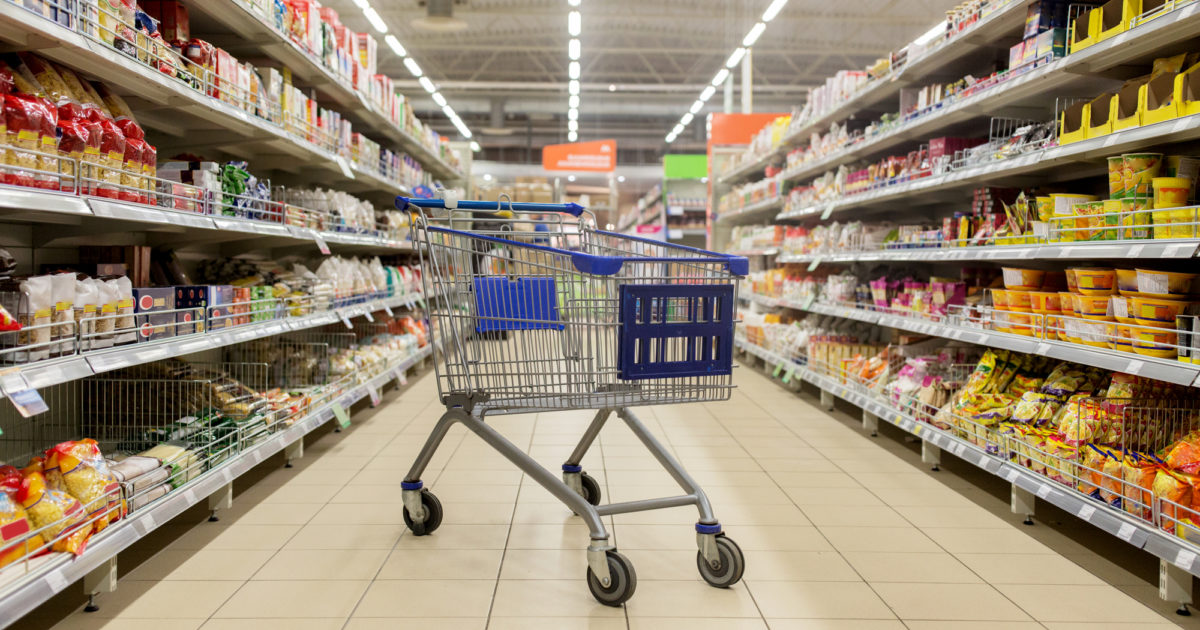Ireland is preparing to head to Chicago for their Test with the All Blacks on Saturday next week with a string of injury concerns.
Wing Mack Hansen has been forced out of the touring squad while uncapped forwards Edwin Edogbo…

Ireland is preparing to head to Chicago for their Test with the All Blacks on Saturday next week with a string of injury concerns.
Wing Mack Hansen has been forced out of the touring squad while uncapped forwards Edwin Edogbo…

Singapore, 21 October 2025 – ST Engineering today announced the establishment of its Cybersecurity Centre of Excellence (CoE) aimed at accelerating the development of agentic AI-driven cybersecurity solutions. Supported by Digital Industry Singapore (a joint office by the Economic Development Board, Enterprise Singapore and Infocomm Media Development Authority) and the Cyber Security Agency of Singapore (CSA), the CoE will strengthen ST Engineering’s cybersecurity capabilities, cultivate a skilled talent pipeline and drive innovation in the cybersecurity sector.
The Cybersecurity CoE will deliver enhanced cyber defence across enterprise IT, 5G, and OT/IoT systems, addressing the next wave of advanced threats. It will start with 26 specialists and grow to an 81-strong team, which will focus on AI, 5G, OT cybersecurity, threat response and security testing.
Building on ST Engineering’s proven expertise in designing and operating Security Operations Centres (SOCs) for critical information infrastructures, the Cybersecurity CoE will advance agentic AI application in next-generation SOCs, digital forensics, and incident response. These autonomous, self-learning solutions provide broader coverage, greater precision, and independent decision-making beyond traditional SOC capabilities. By continuously adapting to evolving cyber threats, the CoE positions ST Engineering at the forefront of industry-leading autonomous cybersecurity innovations.
“With AI and quantum computing, cyber threats are evolving faster and becoming more sophisticated. The Cybersecurity Centre of Excellence will bring together talent, research and advanced AI to strengthen our capabilities to develop cyber defences that are smarter, faster and more adaptive to new threats. Our Agentic AI SOC solution has already redefined new standards in detection and response – mitigating threats in seconds to swiftly protect critical systems,” said Goh Eng Choon, President of Cyber, ST Engineering.
“Digital Industry Singapore (DISG) welcomes the establishment of ST Engineering’s Cybersecurity Centre of Excellence (CoE), accelerating Singapore’s ambition for AI-driven cyber resilience and strengthening our national defence against evolving threats,” said Philbert Gomez, Executive Director & Head, Digital Industry Singapore. “The CoE will be a vital hub for developing autonomous AI solutions that will directly empower cybersecurity practitioners and enhance our capability to detect and combat sophisticated cyber threats at scale. This partnership reinforces Singapore’s resolve to be a globally leading AI hub.”
The Cybersecurity CoE will also nurture the next generation of cybersecurity talent through dedicated labs and training programmes at institutes of higher learning in Singapore, including Republic Polytechnic and Singapore Polytechnic. ST Engineering will train and upskill students on agentic AI solutions developed at the CoE, preparing them to thrive in AI-assisted cybersecurity environments and to harness agentic AI alongside other advanced technologies.
*****
For media enquiries, please write to us at news@stengg.com.

The price of foods hit by extreme weather are rising over four times faster than others in the average shop according to new analysis from the Energy & Climate Intelligence Unit (ECIU) [1].
Using the latest ONS inflation data (August 2025), the analysis finds that although these items make up just 11% of the average shopping basket, they account for nearly 40% of all food price inflation.
Prices for these five foods – butter, beef, milk, coffee and chocolate – have risen by an average of 15.6% over the past year, compared with just 2.8% for other food and drink [1].
The findings come as food inflation remains a key contributor to the UK’s headline inflation rate, with the Bank of England warning that extreme weather is increasingly influencing prices [2], making it harder for them to bring inflation back to the two percent target. The analysis also challenges recent reports that increases to the minimum wage, employer national insurance and the introduction of a packaging tax are driving inflation. These are unlikely to have had a major impact on the five foods that ECIU have found to be driving inflation.
Chris Jaccarini, food and farming analyst at the Energy and Climate Intelligence Unit (ECIU) said: “Shoppers will have noticed that the price of the weekly shop has shot up in recent years. At 73p, a pint of milk now costs 23p more than it did at start of the gas crisis [1]. Milk, butter, beef, chocolate, coffee and olive oil have all been hit by extreme weather and have all become much more expensive. Both butter and beef prices have been driven up by poor grass growth after a historically hot, dry summer, forcing farmers to rely more heavily on bought-in feed. At the same time, a virus outbreak in European dairy herds, which scientists warn is more likely due to climate change, has kept demand for British dairy high.
“While a higher minimum wage and national insurance contributions play a role in food price inflation, they don’t explain why coffee, chocolate or butter prices are surging. Climate shocks are a big factor for these products though, and until we reach net zero emissions and stabilise the climate, households will keep seeing prices rise.
“After the warmest spring and summer and the driest spring in over 100 years, England had its second worst harvest on record this year [3]. This follows last year’s poor harvest which came after incredibly heavy rainfall, made worse by climate change [4]. We have now seen three of the five worst harvests on record this decade driven by extreme weather, telling a story of escalating climate impacts that farmers are struggling to cope with.”
As highlighted in the Bank of England’s August Monetary Policy Report ‘…dry weather conditions are pushing up the production costs of beef and some dairy products in the UK and elsewhere, as cows must be fed silage earlier in the year due to less grass growth [2].’ Alongside a major outbreak of bluetongue hitting milk production in Europe, the risk of which is known to be increased by climate change, [5] this has tightened the availability of milk, and cream pushing up prices.
It is not just British-grown foods that are at risk. The UK imports around 40% [6] of its food from overseas, including many staples like rice, bananas and tea, which we cannot simply grow at home. The commodity price for cocoa, essential for chocolate, has more than tripled in the past three years and doubled in the past two years [1], after extreme heat and rainfall in West Africa hit the cocoa harvest [7]. Much of this surge has yet to fully reach consumer prices, which have risen by a quarter in the past two years and 45% over three years.
Similarly, commodity prices for coffee rose sharply at the end of 2023 and continued to climb through 2024, reaching a peak in March 2025. Again, extreme weather played a major role, with drought in key coffee producing regions such as Brazil and Vietnam [1]. According to FAO estimates, it typically takes around one year for changes in raw coffee prices to filter through to retail prices, with effects lasting at least four years [8].
Anna Taylor OBE, Executive Director of the Food Foundation said: “We are seeing the price of certain products being driven up by extreme weather. This is a worrying trend. Government must treat this as a food security issue, and take steps to build the resilience of farming and our supply chains to shocks, so we can better buffer them. Otherwise, the weekly shop will keep getting more unpredictable – and more unaffordable – for millions of households.”
In 2022–23, climate impacts added an estimated £360 to the average UK household food bill [9]. Government forecasts suggest that the climate exposure of British households will deepen, with over half of UK fruit and legume imports coming from climate-vulnerable countries by 2050 [6].
Chris Jaccarini, food and farming analyst at the Energy and Climate Intelligence Unit (ECIU) said: “Central banks are clear that climate change increases food prices in ways they cannot control or predict, creating systemic risk to our food system [10]. There is no monetary policy lever they can pull to address this. Only by reducing our emissions to net zero and bringing balance back to our climate will we limit the impact of climate change on food prices in the future.”
ENDS
Notes to editors:
1. The analysis, which focused on butter, beef and veal, whole milk, chocolate and coffee, is available to download here.
2. August Bank of England Monetary Policy Committee Report and recent interview with Isabel Schnabel, Member of the Executive Board of the ECB
3. ECIU Comment on 2025 Defra Harvest Statistics
4. https://www.worldweatherattribution.org/autumn-and-winter-storms-over-uk-and-ireland-are-becoming-wetter-due-to-climate-change/
5. https://www.nature.com/articles/s41558-018-0376-6
6. Government -produced UK Food Security Report 2024.
7. https://www.worldweatherattribution.org/dangerous-humid-heat-in-southern-west-africa-about-4c-hotter-due-to-climate-change/
8. Reuters reporting on FAO report.
9. ECIU, Climate, Fossil Fuels and UK Food Prices: 2023
10. https://www.ecb.europa.eu/pub/pdf/scpwps/ecb.wp2821~f008e5cb9c.en.pdf
For more information or for interview requests:
George Smeeton, Head of Communications, ECIU, Tel: 07894 571 153, email: george.smeeton@eciu.net
When 28 year olds Nick Chazee and Mathilde Vougny packed up their belongings to travel the world three years ago, they chose to do it in an unconventional way — in their Land Rover.
Chazee, who was working at a technology startup, and Vougny at the United Nations, were exposed to frequent work travel. But that did not abate their craving to travel more.
“Anytime we had free time, we would go around and travel like even if it was five hours away from home,” said Vougny.
Their passion for travel made them realize that they wanted to do it full-time.
They thought “wouldn’t it be so cool if we could just keep driving and go to Turkey and then to Central Asia, and then all the way to Singapore… and do the whole world,” said Chazee.
It took the couple nearly two years to save up the money to realize their dreams. Initially, the trip was completely self-funded, according to Chazee.
It was only after the couple started documenting their travel on social media platforms that they could rely on that income stream to fund their trips.
“This life is the dream. It’s so much fun, and it’s freedom every day,” said Nick Chazee
However, the couple admitted that they had not intended to monetize their social media presence at the start.
“We’re already doing those videos, but it was for friends and family, so there was no pressure,” said Vougny.
They planned to stop their journey when finances ran out, but “the money started coming when we were doing it not for the money… we’re lucky,” Vougny told CNBC Travel.
Their expenses typically cover the diesel and maintenance of the car, Wi-Fi, Netflix and music subscriptions, visa, and shipping containers for the car to be transported, totaling an estimate of $41,000 per year.
The couple saves on utility bills, rent, and avoid hotels, resulting in a lifestyle that is much cheaper than before they started traveling for a living.
Since Chazee and Vougny need to ship their car whenever they fly to another country, the couple tries to save money by booking flights at the last minute.
That ensures they never have to reschedule a flight if their shipping plans are derailed, saving them a lot of money as shipment costs typically account for a large portion of their expenses, at an average of $6,000 a year.
Travelers who book their shipments and flights in advance risk having to rebook their flights with additional costs to accommodate the unpredictable shipping schedule, said Chazee.
“We literally buy the plane ticket the same day that we want to leave, so we pay maybe 10% more than what it cost two months ago, but at the end, we saved so much more.”
If shipment ever delayed their car, they continued traveling by motorbike.
“We don’t take planes usually anywhere, unless… it’s between our car and our motorbike,” said Chazee.
For this couple, the best experiences are found traveling off the main road
Nick and Mathilde
With a 65-liter water tank refilled at fuel stations, a full-sized shower head, a dual-fuel stove system, and a 45-liter fridge, the vehicle was designed to support daily life on the road.
Laundry gets done every two weeks either by public laundry machines or through third-party services.
The “car setup is perfect in many places, except for the heat,” said Chazee. “We use fans for the night when we sleep… but it’s still too hot sometimes and so we’re sweating. It’s hard to sleep.”
On the other hand, when temperatures dropped to -15°C in Alaska, “we were inside in T-shirts and shorts because we [had] a diesel heater… [and] the hot shower,” he said.
45,000 kilometers traveled a year, half a day is spent driving and the other half doing activities
Nick and Mathilde
In their three years of traveling in a Land Rover, the couple have experienced some rough bumps on the road.
One of such instances occurred after a draining process of shipping their Land Rover to Australia — a move that cost around $7,000.
“Five days after we start driving in Australia, the engine breaks down entirely… worst experience possible,” said Vougny.
After 10 minutes, a local stopped to help.
“We eventually spent 21 days at his home, he helped us fix the car… we were cooking for them, [and] they were cooking for us,” she said. “So even that I can’t recall as a bad memory, but it would totally qualify as a bad moment for us.”
Apart from mechanical challenges, being far from family meant that they had to keep their car parked safely abroad while they returned home.
“But again, we’re lucky because of the community we built online. We have people in every country, and they’re always so welcoming,” said Vougny. “Usually they take really good care of our home, because if they follow our journey, they also know our car very well, and so they care about it as much as we do.”
The couple has a little tradition — “every time we enter a country, we try to find a local from the country to stick the country flag on our car,” she said.
When they were camping in Bolivia, Vougny recalled an interaction with an old man who was afraid that they came to steal their llamas.
“And that was super nice because you know, we tend to be scared of strangers, [yet] he was scared of us… and eventually we talked,” she said. “For me, those small interactions are… my best memories.”
The car draws its own attention with its French license plate and a left-hand drive steering wheel. “So when we go eat, we usually get a bit of chit chat. You meet people,” she said.
One of the highlights of their trip across 160,000 kilometers, is that more than 300 people globally have invited the couple to their homes. “I save all of their names and their location, so when we get to these countries, we write to them again,” said Chazee.
They thought constant travel would wear them out, but it never did, said Vougny.
Though they are set on ending the trip in two years, there are plans for “a new, bigger vehicle and travel to the continents that we really want to do again, or that we feel like we haven’t seen enough,” he said.
Another possible plan is setting up a home base to welcome other travelers in the future and “give back… what we received on this trip,” said Vougny.

WARSAW, Oct 21 (Reuters) – American pianist Eric Lu won the top prize at the prestigious International Chopin Piano Competition in Warsaw on Tuesday.
The decision came after hours of deliberations by a 17-person international jury, chaired by…

Jonathan Barrett
Resources and industrial companies have enjoyed a sharp lift in their share prices in early trading on the ASX as investors weigh up the new Australian-American $US8.5bn critical minerals deal.
Anthony Albanese specifically referred to two “priority projects”, one by Alcoa and the other by Arafura Rare Earths, that will enjoy an injection of capital from the government, as part of a broader list of strategic operations.
Shares in Arafura surged by more than 15% this morning to trade above 55c, while Alcoa was up 8% to $60.
Arafura is planning on producing the light rare earth oxides, neodymium and praseodymium, which are crucial to the production of magnets, used in everything from wind turbines and medical devices to electric motors and ballistic missile guidance systems.
Gina Rinehart has a 10% stake in Arufura.

Alcoa has a proposed gallium plant in Western Australia. Gallium is a strategic metal and essential input in semiconductor manufacturing and the broader defence sector, used in advanced electronic warfare systems.
Australia’s broader critical minerals sector has been rocketing in recent weeks amid the push by the Australian and US governments to break China’s control over the sector.
Key events
Potato supplies lower due to normal constraints, but 2024 conditions had ‘some impact’ on yields, Woolworths says
Some shoppers have reported limited potato supply on supermarket shelves in recent days. Woolworths says drought conditions late last year has limited some supplies, but said any missing spuds should soon turn up as seasonal transition windows end.
A Woolies spokesperson said:
We still have sufficient supply of potatoes for our customers, but drought conditions from late 2024 and frosts earlier this year have had some impacts on growing yields.
It’s also not unusual to see some supply constraints at this time of the year as we hit seasonal transition windows.
We expect things to return to normal in the coming weeks as we move to new season supply.
Top US Democrat says Australia remains ‘stalwart ally’ and Aukus is ‘key’ to American security
US senator Jeanne Shaheen (D-NH), a key Democrat and the ranking member on the US Senate foreign relations committee, said Australia remains a “stalwart ally of the United States in the Indo-Pacific” and a “key bulwark of our collective security and prosperity”.
Shaheen released a statement saying a strong partnership between the two nations is “vital to deterring aggression by China in the region”, adding:
I was glad to see President Trump voice support for Aukus, which is key to both America’s security and ensuring that the burden of collective defense is shared more broadly among partners and allies.
The U.S. must also continue to deepen its cooperation with Australia on critical minerals to secure resilient supply chains that reduce our dependence on China and strengthen our industrial base …
The Indo-Pacific is watching whether America stands by its word. Congress will continue working with our allies to ensure that Aukus and our broader strategic partnerships deliver on their promise of shared security and prosperity.

Jonathan Barrett
Resources and industrial companies have enjoyed a sharp lift in their share prices in early trading on the ASX as investors weigh up the new Australian-American $US8.5bn critical minerals deal.
Anthony Albanese specifically referred to two “priority projects”, one by Alcoa and the other by Arafura Rare Earths, that will enjoy an injection of capital from the government, as part of a broader list of strategic operations.
Shares in Arafura surged by more than 15% this morning to trade above 55c, while Alcoa was up 8% to $60.
Arafura is planning on producing the light rare earth oxides, neodymium and praseodymium, which are crucial to the production of magnets, used in everything from wind turbines and medical devices to electric motors and ballistic missile guidance systems.
Gina Rinehart has a 10% stake in Arufura.
Alcoa has a proposed gallium plant in Western Australia. Gallium is a strategic metal and essential input in semiconductor manufacturing and the broader defence sector, used in advanced electronic warfare systems.
Australia’s broader critical minerals sector has been rocketing in recent weeks amid the push by the Australian and US governments to break China’s control over the sector.

Tory Shepherd
First Nations ancestors from Kaurna country to be buried in Adelaide
First Nations ancestors from the southern parts of Kaurna country will be buried in Adelaide today. It is the fourth ceremony of its kind at the Wangayarta memorial park in Smithfield, in the city’s northern suburbs.
Many of the ancestors’ remains were collected and kept by museums and universities last century.
The Kaurna Yerta Aboriginal Corporation chair, Mitzi Nam, said Kaurna were “deeply relieved that our Old People’s spirits can now reunite and rest peacefully”:
We have now reburied ancestors from the north, south, east and west of Kaurna Yerta – but this will not be the last reburial.
There are still ancestors here and overseas who must be brought home and laid to rest.
SA Museum’s Aboriginal heritage and repatriation manager, Anna Russo, said:
Wangayarta is an everlasting legacy created by the Kaurna people who resolved that their ancestors’ stories of being disturbed from their traditional burial sites last century and heartlessly sent to the Adelaide Museum, University and other institutions, should not be reburied with them.
Back to Barnaby Joyce’s presser earlier, where he was asked why he had been linked to One Nation.
He said:
Pauline [Hanson], she has a lot of positions … where I have similar positions. Note in the past Pauline I have fought bitterly against one another, but things move on.
A lot of her causes that I have, you know, there’s a similar wavelength. If you say everything, no, of course not. But that’s – but I’m, I’m not a member of One Nation.
Joyce added that “philosophically” he had a lot of similarities with One Nation’s priorities, including on scrapping net zero.
Ley stands by call for Kevin Rudd to go, despite reports Trump accepted apology from ambassador
Sussan Ley, the opposition leader, is speaking in Sydney, where she was asked about her earlier call for Kevin Rudd, the ambassador to the US, to lose his job.
Donald Trump reportedly told Rudd “all is forgiven” after the ambassador apologised for calling the US president a “village idiot” four years ago. Ley was asked if that would change her stance on Rudd:
I invite everyone to observe the sharp exchange that took place and make their own conclusions, that many of us have, which is that the president didn’t appear to know the ambassador, and after sledging him in the way he did, then, for the prime minister to actually laugh at that sledge, in front of everyone at that table, shows me that the relationship is not where it needs to be, with respect to all of the hard work.
This isn’t about the individual. This is about the relationship and it’s about Australia’s national interest. And we need everyone kicking goals, every step of the way, to make sure that our businesses and industries are backed in exactly as they should be.
Joyce says his decision has been ‘pretty traumatic’, won’t ‘flippantly’ rejoin the Nationals
Joyce said he agonised over his decision, but wouldn’t “flippantly” rejoin the Nationals and nothing had changed over the last few days that would make him reconsider his choice.
It’s been a pretty traumatic issue. I’m still basically a member of the National party. I have not joined another party … I’m not going to do this thing where you’re out for 24 hours or 48 hours and then you’re back in. It’s not that.
This is a really hard decision that I made, and I thought of it over a very long period of time as things got sort of worse and worse and worse, to be honest. And now I’ve made it. There’s nothing that’s changed in the last couple of days that would ever, you know … I wouldn’t create this kerfuffle if I was just going to flippantly go in, go out, and put my foot back in.
Barnaby Joyce says he won’t be part of process that ‘hurts’ the Nationals, but will be involved in policy debate
Barnaby Joyce is holding a press conference in Tamworth, speaking more about his decision to leave the Nationals.
Joyce said:
The relationship in Canberra, I don’t want to throw the plates around, but it had broken down. I think it’s important to say that. Because otherwise people go, “oh, why?” – it just happens in human relationships that they break down …
I want to make this very clear. I love the membership that has been so good to me. And I am not going to be part of any process that I believe hurts the National party membership. OK? I will be involved in the policy debate. I’m entitled to that.
He said his decision was centred on his ability to speak his mind without rubbing up against others in the Nationals.
That’s why I’m resigning from standing for New England. Because I don’t want to hurt the people who’ve basically handed out for me and done all those things for me. So that gives them a chance to move on.

Josh Butler
Albanese to dine with Marco Rubio and meet with US treasury secretary
Anthony Albanese continues his Washington diplomatic tour this evening, scheduled for meetings and dinner with two Trump lieutenants.
The prime minister will meet the secretary of state, Marco Rubio, for dinner, and join the treasury secretary, Scott Bessent, for a working meeting as well.
Albanese’s DC trip finishes up tomorrow, a lightning-quick visit then back to Australia.
Australians splashing out on online shopping spent a record $20.7bn in last quarter
Australians spent a record $20.7bn online in the quarter stretching from July through September, up 15% from last year, according to new data from Australia Post.
The data shows about 8.1m Aussie households shopped online, a 2.7% year over year increase, with an average cart size a steady $95.
The biggest categories for shoppers are online marketplaces, food and liquor and fashion, with 50% of people setting their sights on Black Friday sales next month.
People in New South Wales shopped the most online, followed by Victoria and Queensland.
‘I don’t like you either’: Trump chides Australian ambassador Kevin Rudd at the White House
Here’s a snippet of the White House meeting today.

Anne Davies
Minns says Northern Beaches hospital buy-back reverses ‘one of the worst decisions’ of any NSW government
Here’s more on what the NSW premier, Chris Minns, had to say about the buy-back of Northern Beaches hospital:
We’ve reversed one of the worst decisions of any NSW government, where a private hospital model was foisted on the people of the Northern Beaches.
Our state’s acute hospital services that provide life-saving care to the people of New South Wales should not be privatised and thanks to this decision, no hospital in NSW will be.
Because of Elouise and Danny [Massa]’s courage and persistence, Joe’s Law now ensures that no future government can repeat the mistakes that led to the Northern Beaches hospital privatisation. Their advocacy will leave a lasting legacy for every patient and every family who relies on our public health system.
The government is still to work out how it will deal with private services at the hospital, which clinicians say are an important part of the service for those with private health cover.
The government has said that all staff will be offered employment with NSW Health.

Josh Butler
Half an hour after a remarkably drama-free and warm meeting between Donald Trump and Anthony Albanese, the Australian ambassador to the US, Kevin Rudd, was heard apologising to the president, leaning over the table to say sorry to the man he called a “village idiot” four years ago.
Trump, according to Australian sources in the room, told Rudd “all is forgiven” after the media filed out.
Read more here:
The opposition leader, Sussan Ley, has used several media appearances this morning to say Kevin Rudd should no longer be the Australian ambassador to the US.
She told ABC News this morning Trump’s remarks towards Rudd were the “elephant in the room”:
To be rebuked by the president, who didn’t even seem to know the ambassador [from] Australia, and then have your own prime minister laughing along, was a bit unfortunate, and I don’t think the ambassador’s position is tenable now.
She also told Sky News:
When the ambassador is the punchline of the joke and the prime minister is actually laughing at him, I think that tells us all we need to know – it’s probably not reasonable that he continues in the role.
Ley said she wouldn’t call the meeting a success, pointing to a lack in movement in tariffs:
I don’t know that the work has been done to secure, as I said, that commitment to a tariff deal that we really want to see in this country … there are a lot of issues in the relationship. And maybe the critical minerals deal could have been leveraged to get those commitments around tariffs. It doesn’t appear that happened either.

(Bloomberg) — Asian shares rose Tuesday, buoyed by upbeat US earnings and indications that tensions between Washington and Beijing were easing.
Benchmarks in Japan and Australia climbed with stocks in South Korea jumping over 1% at the open. US equity futures edged higher after the S&P 500 and the Nasdaq 100 both rose more than 1% Monday. A gauge of US-listed Chinese companies advanced 2.4%, its best showing in a week. Gold extended gains in early Asian trading, even as some warned about a potential bubble in the precious metal.
The S&P 500 logged its biggest two-day gain since June on Monday, with about 85% of companies beating profit estimates so far. Strong third-quarter earnings helped temper worries over the US government shutdown, while hopes of progress in US-China trade talks lifted sentiment. President Donald Trump reiterated his threat to follow through on a tariff hike on Chinese goods “if there isn’t a deal” by Nov. 1, but said he plans to meet President Xi Jinping next week.
“Thank God for earnings season,” said Callie Cox at Ritholtz Wealth Management. Given the US government shutdown, analysts have been deprived of data for weeks, leading to “panic around headlines,” she said.
Earlier this month, markets were roiled as Trump raised the prospect of a sky-high tariff rate, citing China’s “hostile” export controls. Soybean futures rallied Monday, with growers holding out hope that Trump will make a deal with China to restart stalled American exports.
Separately, shares of critical mineral producers jumped in Sydney on Tuesday after Trump signed an agreement with Australian Prime Minister Anthony Albanese to boost America’s access to rare earths and other key materials.
US Inflation
After being delayed by the US government shutdown, the Bureau of Labor Statistics will release the September consumer price index on Friday. The data, originally slated for Oct. 15, will give Federal Reserve officials a critical piece of information on inflation ahead of their Oct. 30 meeting.
Economists in a Bloomberg survey forecast the core CPI, which excludes food and fuel for a better snapshot of underlying inflation, to have climbed 0.3% for a third straight month as higher import duties continue to gradually filter through to consumers. The projected monthly gain will keep the annual core CPI at 3.1%.
“September core CPI likely moderated slightly due to cooling services prices offsetting additional tariff passthrough into goods prices,” said Oscar Munoz at TD Securities. “Energy prices likely boosted headline CPI.”
Friday’s inflation data may take on greater importance due to the government shutdown-driven data drought, said Rick Gardner at RGA Investments. He still sees a Fed cut in October and noted that a key test will be big tech earnings, with investors looking for clarity on how spending on artificial intelligence is leading to profitability.
“We are seeing the typical seasonal volatility in October, but the recent swings have been relatively shallow by historical standards, as the buy-the-dip mentality appears to be in play,” Gardner said.
Some of the main moves in markets:
Stocks
S&P 500 futures were little changed as of 9:16 a.m. Tokyo time Hang Seng futures rose 1.4% Japan’s Topix rose 0.4% Australia’s S&P/ASX 200 rose 0.6% Euro Stoxx 50 futures rose 0.2% Currencies
The Bloomberg Dollar Spot Index was little changed The euro was little changed at $1.1651 The Japanese yen was little changed at 150.61 per dollar The offshore yuan was little changed at 7.1226 per dollar The Australian dollar was little changed at $0.6518 Cryptocurrencies
Bitcoin fell 0.7% to $110,323.19 Ether fell 0.7% to $3,971.05 Bonds
The yield on 10-year Treasuries was unchanged at 3.98% Japan’s 10-year yield declined one basis point to 1.660% Australia’s 10-year yield declined three basis points to 4.12% Commodities
West Texas Intermediate crude fell 0.1% to $57.45 a barrel Spot gold was little changed This story was produced with the assistance of Bloomberg Automation.
©2025 Bloomberg L.P.

SYDNEY, Oct. 21, 2025 (GLOBE NEWSWIRE) — Global online fashion and lifestyle retailer SHEIN is closing out the year with a spirited reminder that it’s never too late to finish what you started. Introducing Tick It Off Fest: an end-of-year…